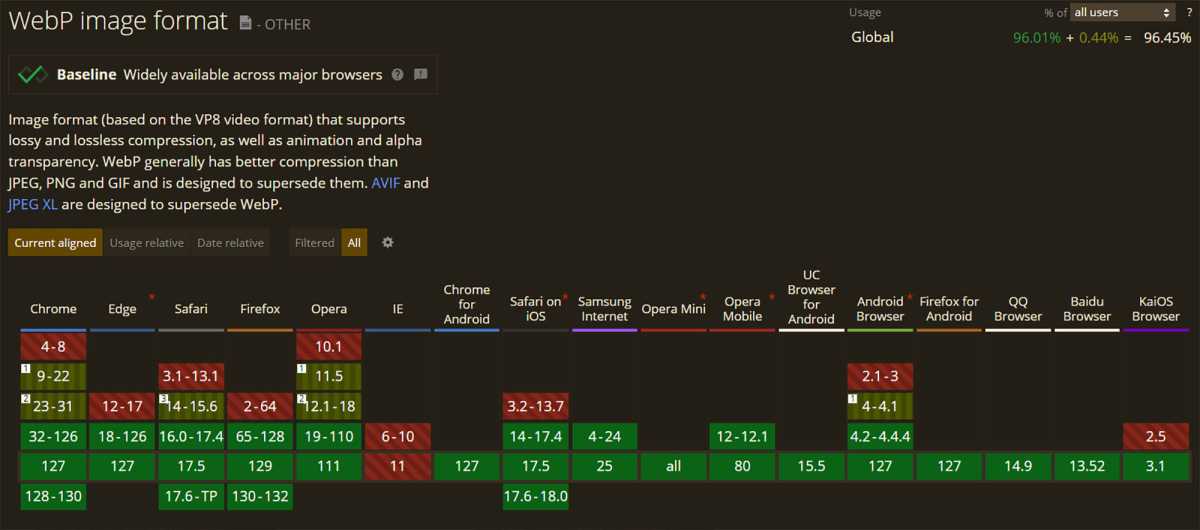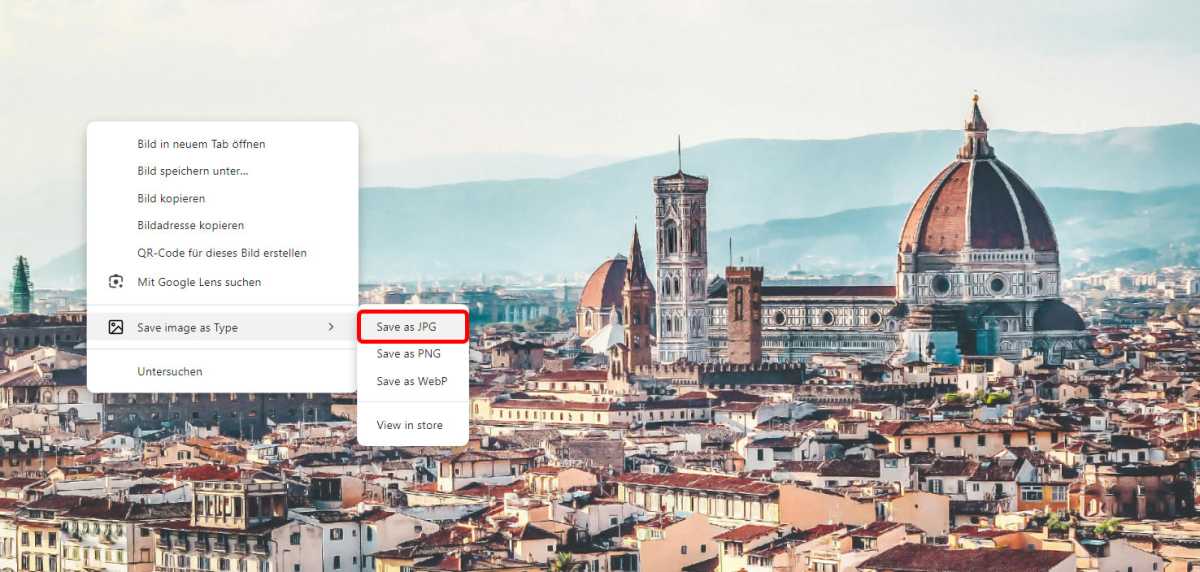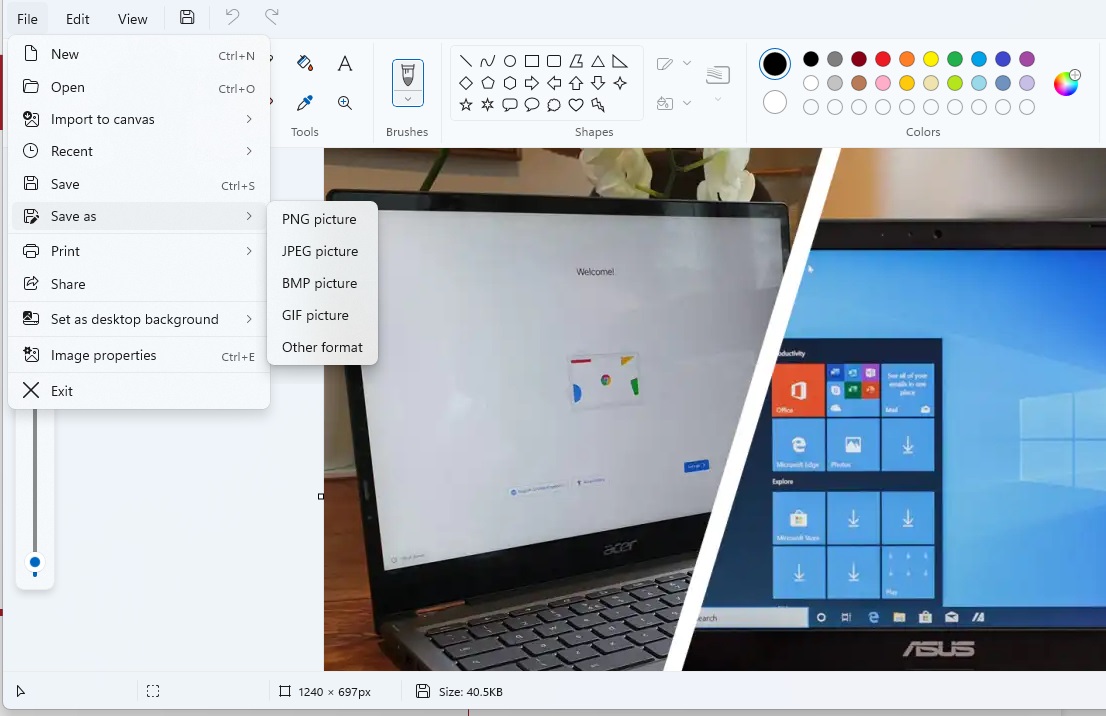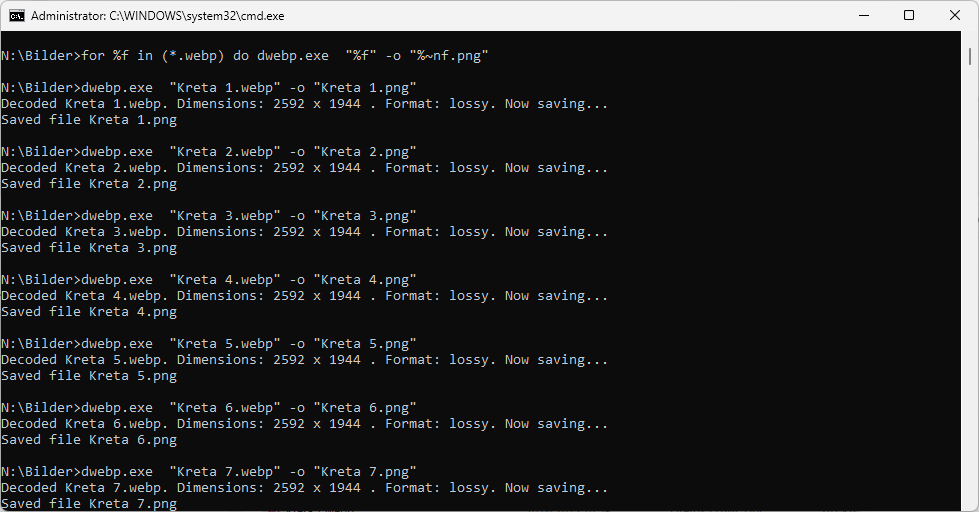What is WebP?
Anyone trying to save images from websites these days is increasingly stumbling across the new WebP image format. But what is it actually?
WebP was developed by Google to replace the outdated JPG, PNG, and GIF formats and is said to be technically superior to all three.
The format supports both lossless and lossy compression.
With lossless compression, the original image quality is retained, while lossy compression enables an even smaller file size at the expense of image quality.
WebP can also handle transparency (alpha channel) in a similar way to PNGs. Animations from several images, as known from GIFs, are also possible.
According to Google, WebP is able to compress images on average up to 30 per cent more than JPG with the same image quality thanks to significantly more complex compression algorithms.
Google shows the advantages of WebP over JPEG and PNG on its website.
WebP has been on the rise on the web for several years — not least because Google is actively pushing the format.
Anyone who uses Google’s website optimization tools PageSpeed Insights or Lighthouse in particular is advised to use “next-gen” formats such as WebP instead of JPG on their website.
What are the advantages and disadvantages of WebP compared to JPG and PNG?
| Advantages of WebP | Disadvantages of WebP |
|---|---|
| On average 30 percent better compression than JPG/PNG | Less adoption than JPG/PNG. Some programs and apps cannot open or edit WebP. |
| Supports transparency | More complex encoding/decoding and therefore slower saving |
| Supports animations | Already no longer “cutting edge.” The newer AVIF image format generally achieves even better compression rates with the same quality as WebP. |
| Can save images flexibly in lossless or lossy format |
Which programs can open WebP?
WebP has been supported by all common browsers for many years.
Google Chrome has been able to handle WebP since October 2010. Edge has been able to do so since the switch to Chromium in 2020, as have all other Chromium-based browsers. Firefox has supported WebP since 2019, while Safari introduced the format in 2020.

WebP is fully supported by all modern browsers.
IDG
Although support for WebP initially left much to be desired in many image editing programs, the situation has improved significantly as of 2024.
All top dogs and most well-known tools now offer support for WebP, such as
- Windows Photos (since 2023)
- Microsoft Paint (since 2023)
- Paint.NET (since 2019)
- GIMP (since 2018)
- IrfanView (since 2011)
- Inkscape (since 2021)
- Adobe Photoshop (since 2022)
- Adobe Illustrator (since 2021)
You can find an overview of other programs with WebP support on Wikipedia.
Nevertheless, there may be reasons why you would prefer to convert WebP to JPG or PNG. In the following sections, we will show you how to do this and which tools you need.
Convert WebP using browser add-ons or online
There are a number of free conversion tools that can convert WebP files to JPG and the like without much effort.

Browser add-ons can save WebP images directly from the browser in other format
s.
IDG
Browser add-ons such as Save image as Type for Chrome or Save webP as PNG or JPEG for Firefox are probably the easiest. To download a WebP image in the browser, simply right-click and the image can then be downloaded.
There are also many free online conversion tools that convert WebP into any other image format. Services such as Convertio, Cloud Convert, or Tiny Img can be used for this.
Convert WebP to JPG or PNG with Paint
You can use the Windows onboard tool Paint to open WebP files and convert them to other common image formats.
To do this, right-click on the WebP image and then select Open with > Paint. In Paint, click on File > Save as and select the desired format under “File type.”

An image file in WebP format can be opened with the Windows onboard tool Paint and then converted into another image format.
Foundry
Convert WebP to PNG with the command prompt
If you are familiar with the command line, you can also use the official command line tool dwebp to convert WebP files to PNG or some other formats.
This tool is included in the libwebp package that Google offers for free on the Webp project page.

If you want to convert several files in WebP format to PNG format, the commands for and dwebp, which you enter in the command line as above, will help.
IDG
Download the package to your computer via the link “Download for Windows” and unpack the archive libwebp-1.2.4-windows-x64.zip. Switch to the “bin” folder. Hold down the Shift key and right-click in the folder. You can then select the command “Open command prompt here” from the Windows Explorer context menu.
If your image file has the name Image.webp, use this command to convert your file to PNG format:
dwebp image.webp -o image.png In this example, we assume that the image file is located in the same folder as the dwebp.exe command. If this is not the case, you must also specify the path to the image file. If you want to convert several webp files to PNG format, use the following command:
for %f in (*.webp) dodwebp.exe "%f" -o "%~nf.png"The dwebp command does not convert to JPG format.
Converting WebP on MacOS
Similar to Paint in Windows, you can use the standard image editing tool Preview in MacOS to convert WebP files to other formats.
To do this, open the WebP image in Preview and then click on “File” in the menu bar and then on “Export.” Here you can select the format for saving as usual, such as JPG or PNG.
Alternatively, there are also specialized programs in the Mac App Store, such as WebP Converter, which can convert several WebP files at once into more common image formats.
This article originally appeared on our sister publication PC-WELT and was translated and localized from German.

